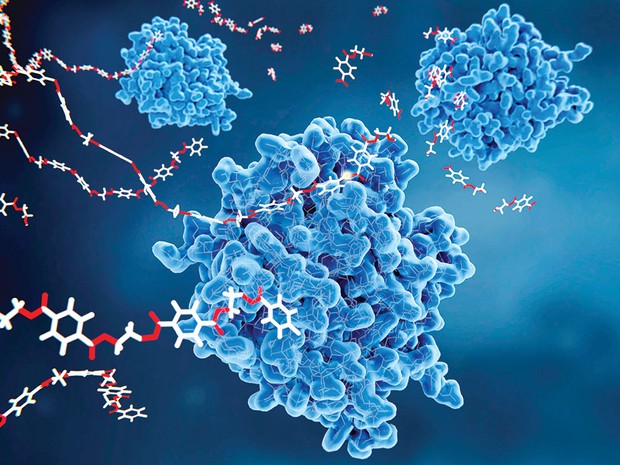“Plastic is the most destructive weapon than a nuclear bomb or an atom bomb, its impact shall remain for centuries on the future generation”
The Discovery of “super-enzyme” by Japan in 2016 is marked as a turning point in the history of plastic evolution. This bio-engineered plastic-eating bug ensures recycling plastic bottles six times faster than ever before.
Derived from the bacteria, a remarkable ability to eat plastic is embedded in the nature of this super-enzyme, thereby accelerating the process of plastic recycling. The researchers revamped an engineered version of the first enzyme in 2018 that breaks down plastics in less than a few days. Bio-Engineered plastic bugs came into research after Japan experienced massive discomfort owing to the polluted environment due to the plastic bottles scattered everywhere.
Scientists claim that this “plastic-eating bug” can also be paired up with other enzymes to degrade the cotton or mixed-fabric clothing dumped into oceans & landfills. The enzyme known as PETase that was being found accidentally has a determined structure to attack the crystalline surface of the plastic bottles by 20% faster. Prof McGeehan from the University of Portsmouth (UK) puts forward that ‘linking enzymes will work faster when they are given to the companies like Carbios’.
A bacterium can’t be created by a linked super-enzyme, as they have got larger molecules. Therefore, the Scientists saw the tripling speed once they connected two enzymes in the laboratory. Twinning the plastic-eating bugs with the existing ones helps the natural fibres break down while allowing recycling of mixed materials in wholesome. “Mixed fabrics of polyester and cotton are tricky to recycle”, says McGeehan.
[The exclusive research by scientists at the University of Portsmouth and four Us institutions are published in the journal Proceedings of the National Academy of Sciences.] Minimizing plastic use is certainly the key to save our planet but considering the worldwide massive use of plastic, the world can pin hope on Bio-Engineered Plastic Eating Bugs as of now.
From the editor-in-chief
How can we be not grateful to disrupting campaigns such as Plastic Pollution Coalition and Greenpeace and the documentary “BBC’s Blue Planet” that shook us to the core in the context of our lifestyle having negative repercussions on the health of the ocean?
The findings from a Greenpeace Report reveals that every year 260 million tonnes of plastic is produced by the world and around 10% of the same ends up in the sea. Marine animals then end up consuming the same plastic believing it to be food. A large number of marine animals encompassing fish, birds, whales have been dying owing to plastic consumption.
The leftover 90% plastic that washes up on landfill sits for thousands of years. Regrettably, plastic being a synthetic material does not biodegrade. Either it breaks down into tiny pieces or degrades thereby releasing toxins that go on to pollute the soil while severely affecting wildlife and harming the fragile ecosystem and whatnot. More than 1 MM marine animals die painful deaths because of consuming plastic.
“You wouldn’t think you could kill an ocean, would you? But we’ll do it one day. That’s how negligent we are.”
Share in the comments if you took one step to minimize plastic usage because one step no matter big or small matters at this moment.


